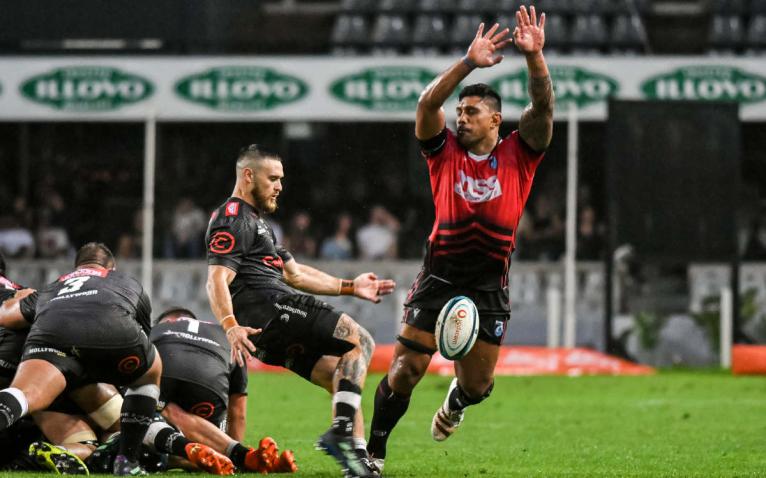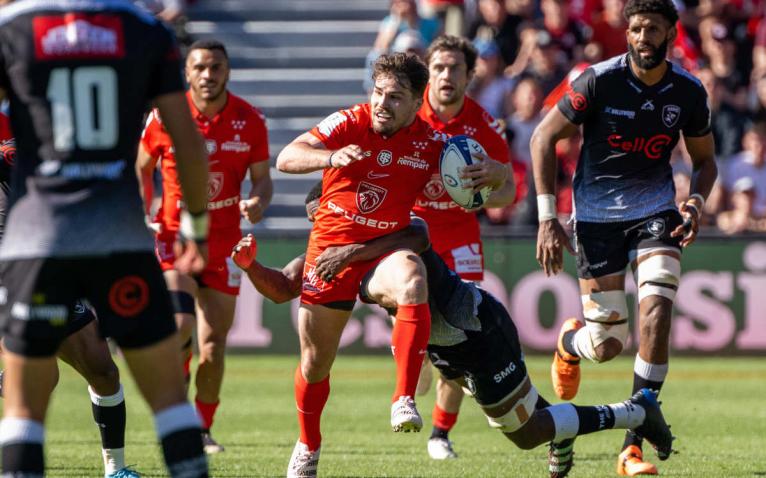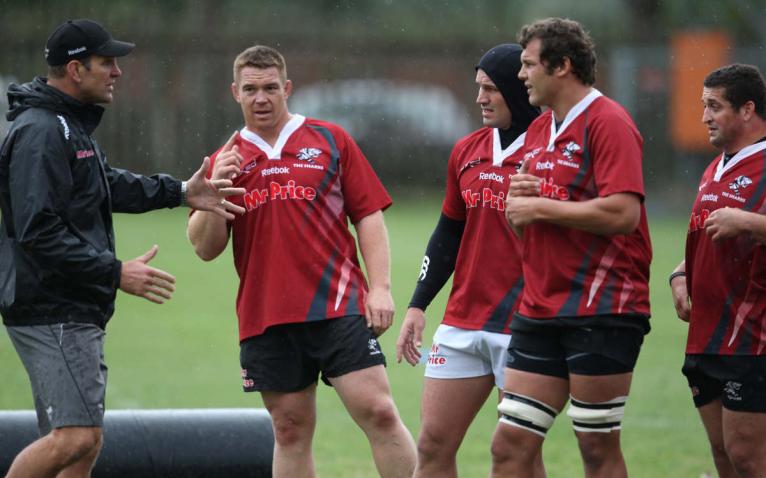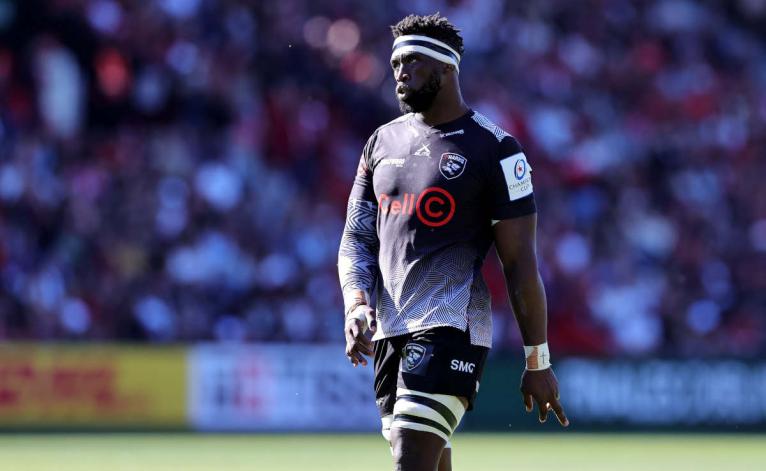The travel brochures call Durban the “warmest place to be,” but locals, honest ones at least, will concede that this is a marketing euphemism, the sort that dishonest real estate agents employ when referring to dilapidated houses as a “fixer-upper”.
It is warm on South Africa’s east coast. But it’s also humid. There are times when walking along the beach-side promenade is akin to wading through thick soup. That’s because the region is covered in dense clouds for at least half the year, encasing its residents in a muggy terrarium. There are sunny days, but these are few and far between. Spend enough time down there and you’ll start to wonder if you’ve been sold a dream.
It’s hard to ignore the metaphor sitting just to the north of the city centre. No, not the unnecessary and expensive (albeit, quite beautiful) stadium that was built for the 2010 Fifa World Cup. I’m talking about Kings Park Stadium and its occupants, the Sharks.
This is a rugby team that rarely lives up to its own brand assurances. It’s an organisation that fielded 14 Springboks over a URC campaign that saw them limp to an eighth place finish with a win rate of just 50%. They possess some of the most iconic and instantly recognisable figures in South African rugby, have close ties with the billionaire rapper Jay Z’s agency, Roc Nation, and are bankrolled by a US consortium. Still, they’ve promised sun and warmth and delivered nothing but sweaty discomfort.
Their season ended on a predictably drab note this weekend. A 33-5 defeat in Dublin to Leinster kicked their backsides as they left the URC having gained a front row seat to what a coherent and well-drilled outfit looks like. Two yellow cards didn’t help, but even if they were granted the benefit of a 16th man throughout the 80 minutes it wouldn’t have made a difference.
“We didn’t meet the expectations we had for ourselves,” says Neil Powell, the Sharks’ director of rugby who, just six matches through the campaign, took over as head coach after Sean Everett was sacked following a 35-0 drubbing at home to Cardiff. “But this is a new era. There are things that we’ve put in place that we can build on. There is a good foundation already.”

New eras are relatively frequent events in Durban. Founded in 1890 as the Natal Rugby Union, the province was a rugby backwater until the 1960s when Izak van Heerden, a Pietermaritzburg native and an Afrikaans teacher at Durban High School, assumed control of operations. Under his management, the side were unbeaten in 1961 and 1963.
But their wait for a maiden Currie Cup title endured until 1990 when Joel Stransky steered the team to a 18-12 win over Northern Transvaal in Pretoria. Another win in 1992 and two more in 1995 and 1997 coincided with the nascent professional age and the Springboks’ World Cup win. Success brought success but it also helped cultivate unrealistic expectations that continue to cloud the team’s progress.
“That’s how it goes,” Powell adds when asked if the franchise has had to carry unfair pressures placed upon it by fans and the media. “It’s always going to be the case.”
The Sharks have won a total of eight Currie Cups, most recently in 2018 when two current members of the Sale Sharks, Akker van der Merwe and Robert du Preez, bagged 12 points between them in a 17-12 win in Cape Town. That haul places them fourth on the list, a long way behind Western Province (34) and the Bulls (25), but still chasing the tail of the Lions, a union that has been plagued by mismanagement and under achievement and yet still has two more domestic crowns than the Sharks.
This story of constant agony and unfulfilled potential was supposed to be consigned to history. At least that’s what was promised once that war chest from the US opened up and began to pour in a torrent of dollars.
In Super Rugby, the Durbanites had become a byword for near misses. They were vanquished finalists on four occasions and limped away from the competition in 2019 with a 38-13 loss to the Brumbies in the quarterfinals. Rugby history doesn’t repeat itself, but it almost always rhymes.
Then came the pandemic and a chance to reset. When the world opened again the Sharks found themselves in a new competition alongside new teams in a new hemisphere. Maybe this was the change the franchise so desperately needed.
Instead it was more of the same. They were well beaten by the Bulls in two consecutive Currie Cup finals in 2021 – a consequence of the covid-distorted calendar – and lost to them again in the quarter-finals of the inaugural URC last year.
But this story of constant agony and unfulfilled potential was supposed to be consigned to history. At least that’s what was promised once that war chest from the US opened up and began to pour in a torrent of dollars.

In February 2021 the Sharks pulled off a coup by procuring the services of Siya Kolisi. It was seen as a landmark signing, one that underlined the intention of the club’s CEO, Eduward Coetzee, to turn the Sharks into a “global brand”. A year later Eben Etzebeth joined and suddenly this sleeping giant had enough muscle to cause a stir not only at home, but across the world as well.
Every area of the pitch now had Test experience. But for whatever reason, things just couldn’t click. Powell believes he knows why.
“We’ve struggled with cohesion,” he explains. “Especially in a World Cup year where we’ve got eight or nine guys missing for games and then you put them back in and you lose that cohesion.”
The Sharks have appointed a new coach who understands the club. The word ‘new’ in the previous sentence is doing some heavy lifting as the man now in the hot seat in Durban is John Plumtree, the New Zealander who has sat there before
But this excuse doesn’t fly, especially when one considers the success of the Stormers who had one more representative than the Sharks at the 2022 end of year tour to Europe. Surely that’s not the only reason why Everett lost his job. Powell again has an answer.
“Having players come from other unions, other systems where things were done differently, I don’t think we’ve fully aligned with the Sharks’ way,” he continues. “It will take a full pre-season to align and work on some things. I don’t think it’s a toxic culture, it’s about aligning expectations and cultures within the team.”
In order to rectify this apparent lack of identity, the Sharks have appointed a new coach who understands the club. The word ‘new’ in the previous sentence is doing some heavy lifting as the man now in the hot seat in Durban is John Plumtree, the New Zealander who has sat there before.
The Sharks enjoyed success under Plumtree who represented the side in both the second and back rows between 1988 and 1997. In 2008 he helped end a 12 year Currie Cup drought and would claim another crown in 2010. But a difference in opinion with the newly appointed CEO, John Smit, saw Plumtree leave in 2012.

“The Sharks have gone through a fair bit of unsettlement since I’ve left,” Plumtree says of a team that has not seen a head coach last more than three years in that time. “It would be nice to settle things down again and create an environment that the players love to come to work. If we can do that and tweak the culture a little bit ithen we’ve got a great chance for success.
“I’m not thinking about style of rugby. I’m more thinking about people and the culture. The rugby will take care of itself.
“We want to win. But there is a process that comes before that and tweaking the environment and culture and making sure the 50 boys who come through the gate enjoy doing so. If we get that mixture right we’ll do well.”
Powell stresses the need to bolster the squad’s depth and is determined to see young prospects graduate from the famed Sharks Academy and feature regularly for the senior side.
“That is the sign of a healthy club,” he says. “We need to develop Springboks internally. We want to make sure we’re sustainable. We want to become an institution in the URC. We want to be sustainable in our own union.”
We need to create a good enough environment so that players don’t want to leave. When I was here last we played a good brand of rugby, one that was good to watch. And that came with success.
John Plumtree
That ambition is more important now after the departures of Kolisi and Thomas du Toit, the versatile prop and leader within the group. Plumtree says that he personally tried to convince them both to stay but couldn’t change their minds.
“We need to create a good enough environment so that players don’t want to leave,” Plumtree adds. “When I was here last we played a good brand of rugby, one that was good to watch. And that came with success. That’s where I’d like to take this team. I want them to enjoy what they’re doing out there and believe what they’re doing out there.”
Powell has one more ploy at his disposal to help usher in this new era. Durban has endured a torrid few years. The pandemic hit all South African cities hard with particularly harsh lockdown laws. But this was merely an appetiser for what was to come.
In 2021 civil unrest following the imprisonment of the former president Jacob Zuma for contempt of court plunged the region into chaos. Over eight days, 354 people died and around 5,500 were arrested in a wave of violent protests and rampant criminal looting that resembled the last days of Rome. Racial tensions boiled over as communities were split into warring factions. Food and medical supplies ran low. Damage to property was estimated at R25 billion (£1.07 billion).

More was to come. In 2022 devastating floods claimed more than 300 lives. Neglected infrastructure and poor maintenance to storm drains were blamed as the tragedy was seen within a broader political and social malaise in the province. Since then, a pall and eerie energy has settled over the city.
“That’s part of the motivation to do well,” Powell says. “We want to inspire. We want to give hope. Not just in the way we play but also in the way we carry ourselves. Durban has been through a lot over the past two years. We want them to be proud of us as representatives of the region. It’s an honour to play for Durban.”
The page turns. A new era begins. Sunnier days have been promised.



Plumtree was shoddily treated by the rookie CEO in 2012.
Weather can be gloomy, often test cricket games are called off for bad light a 4:30pm.
At least its almost aways warm.
The rugby however blows very hot and cold.
Good luck Plumtree, nice to have you back.